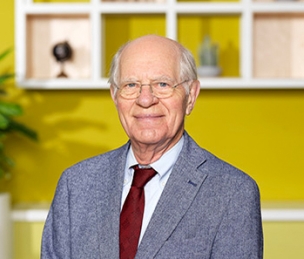Displaying 1 - 5 of 5
-
Levelt, W. J. M. (2022). Onderwerp het gehele oeuvre aan een integriteitsonderzoek (part of “Fraude-experts: Leiden moet al het werk van Colzato onderzoeken én openbaren” by S. Van Loosbroek, & V. Bongers). Mare: Leids Universitair Weekblad 23 February 2022.
-
Levelt, W. J. M. (2018). Is language natural to man? Some historical considerations. Current Opinion in Behavioral Sciences, 21, 127-131. doi:10.1016/j.cobeha.2018.04.003.
Abstract
Since the Enlightenment period, natural theories of speech and language evolution have florished in the language sciences. Four ever returning core issues are highlighted in this paper: Firstly, Is language natural to man or just an invention? Secondly, Is language a specific human ability (a ‘language instinct’) or does it arise from general cognitive capacities we share with other animals? Thirdly, Has the evolution of language been a gradual process or did it rather suddenly arise, due to some ‘evolutionary twist’? Lastly, Is the child's language acquisition an appropriate model for language evolution? -
Levelt, W. J. M. (1973). Formele grammatica's in linguistiek en taalpsychologie (Vols. I-III). Deventer: Van Loghem Slaterus.
-
Levelt, W. J. M. (1973). Recente ontwikkelingen in de taalpsychologie. Forum der Letteren, 14(4), 235-254.
-
Levelt, W. J. M., & Bonarius, M. (1973). Suffixes as deep structure clues. Methodology and Science, 6(1), 7-37.
Abstract
Recent work on sentence recognition suggests that listeners use their knowledge of the language to directly infer deep structure syntactic relations from surface structure markers. Suffixes may be such clues, especially in agglutinative languages. A cross-language (Dutch-Finnish) experiment is reported, designed to investigate whether the suffix structure of Finnish words (as opposed to suffixless Dutch words) can facilitate prompted recall of sentences in case these suffixes differentiate between possible deep structures. The experiment, in which 80 subjects recall sentences at the occasion of prompt words, gives only slight confirmatory evidence. Meanwhile, another prompted recall effect (Blumenthal's) could not be replicated.

Share this page